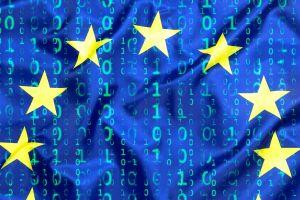These Seven EU Members Didn’t Join European Blockchain Partnership
The European Commission has announced that 22 European countries (including Norway, which is not a part of the EU) signed a Declaration on the establishment of a European Blockchain Partnership on Tuesday. Other countries, Members of the EU and of the European Economic Area are “invited to join the European Blockchain Partnership” according to the EC.

“The Partnership enables Member States to work together with the European Commission to turn the enormous potential of blockchain technology into better services for citizens,” said Mariya Gabriel, Commissioner for Digital Economy and Society of the EC.
The following EU members, however, are conspicuously missing as they did not sign the declaration: Croatia, Cyprus, Denmark, Greece, Hungary, Italy and Romania.
“The absence of signature on some of the declarations simply means that they were no ready for 10 April,” a spokesperson for the EC told Cryptonews.com.
“It is similar to our last year’s Declarations, e.g. the Declaration on supercomputing was signed originally by 7 Member States, now we have already 15 countries on board with more countries to join soon,” she added.
Croatia, for example, is no stranger to blockchain: in February, a self-regulatory organization UBIK was registered with the goal of creating a crypto community, educating the public, and developing regulation in Croatia. Cyprus boasts its own Master of Science degree in Digital Currency at the University of Nicosia, that includes courses such as Blockchain Technology and Applications, and will also host the blockchain related conference this year.
Denmark seems like the obvious outlier, given that Scandinavian countries are not expected to refuse participation in technological advancement. Still, Denmark is also well-known for its efforts on the blockchain front, from using it for the distribution of foreign aid to blockchain payments.
Greek graduates may soon be able to prove their qualifications by way of a blockchain as GRNET, the national research and education network of Greece, is working on a pilot project with blockchain research and development company IOHK to verify student diplomas on the blockchain-based Cardano platform.
Hungary aims for early dominance in the field, not least thanks to the establishment of a competence center, trying to become the regional blockchain hub. Blockchain Competence Center is a Budapest based center which “gathers and provides blockchain competence to all industries’ players,” according to the website.
Of course, Italy would never be left behind on these ventures: they boast their own blockchain lab in Milano and even use blockchain in agriculture, as shown by SmartAgriFood.it. And finally, Romania is also active in the industry: it is working on blockchain adoption thanks to EU funding, albeit slowly. In Romania, there seems to be growing interest in the technology from entrepreneurs, but lack of public decisions is slowing blockchain adoption and the alignment with European tendencies.
For now, there is no clear reason as to why these seven countries would choose not to sign the declaration, given that they have shown an interest in the up-and-coming technology. Meanwhile, the EC-initiated partnership is set to “contribute to the creation of an enabling environment, in full compliance with EU laws and with clear governance models that will help services using blockchain flourish across Europe,” according to the official statement.




